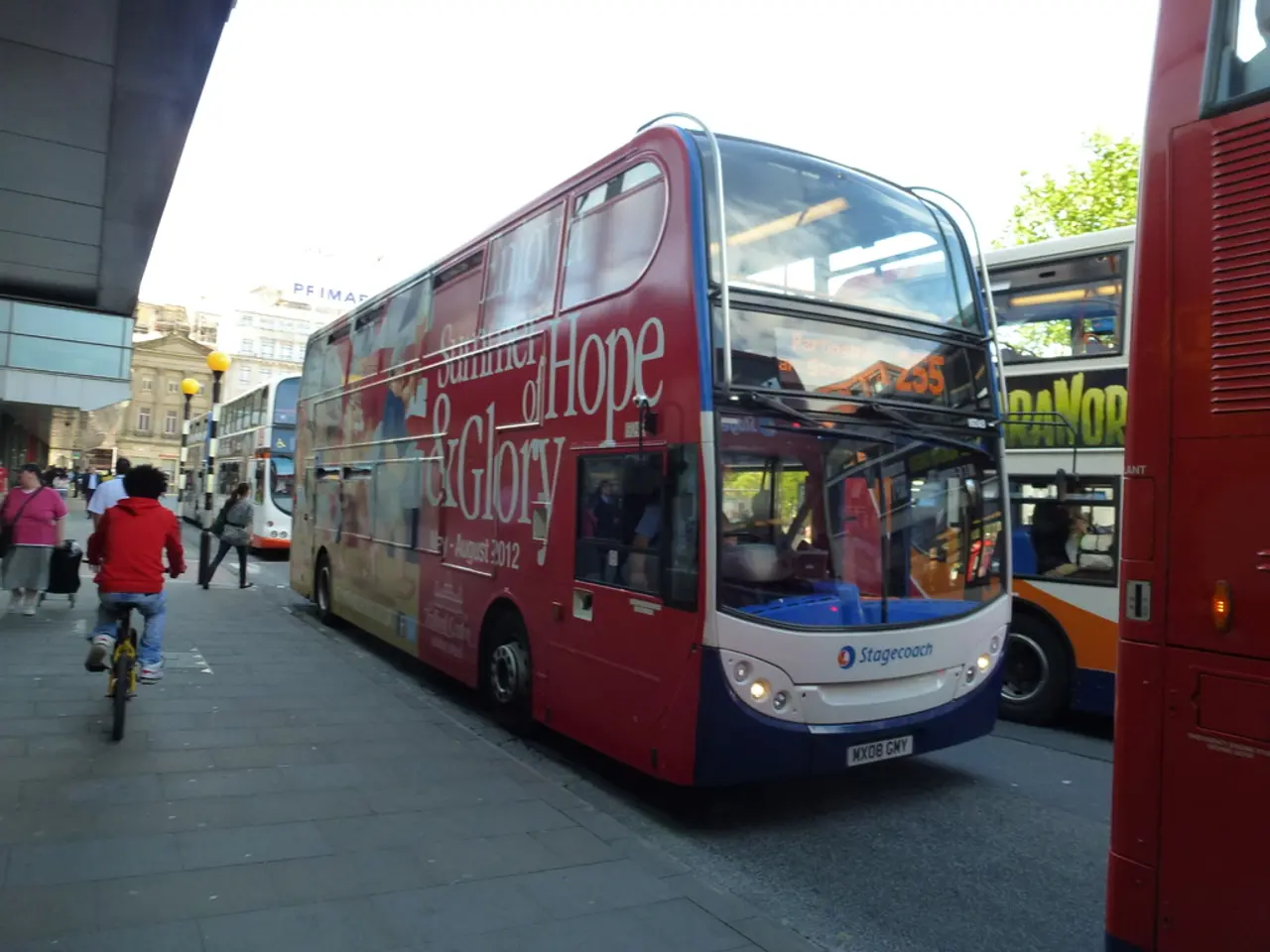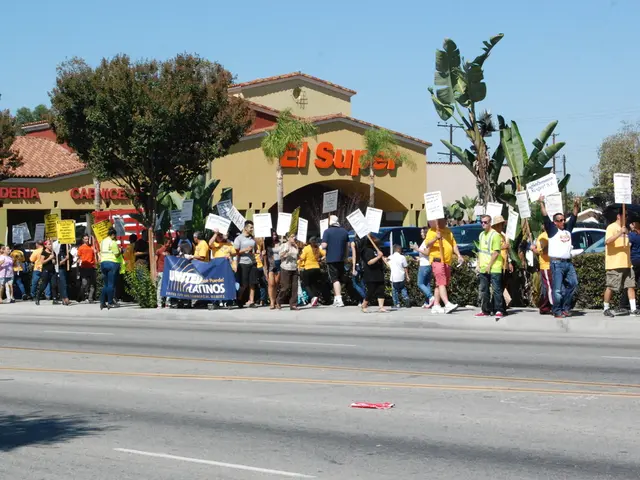Trier's Transport Habits Shift: E-bike Use Surges, Cars Decline
Trier, a city in Germany, has witnessed a significant transformation in its transport habits over the past five years. The number of electric bicycles (E-bikes) has skyrocketed, while car ownership has decreased slightly. This has led to a rise in eco-friendly modes of transport.
In 2023, 20% of all bicycles in Trier are E-bikes, a remarkable leap from just 0.1 per household in 2018. This shift coincides with a decrease in car ownership, which has dropped from 1.08 to 1.04 cars per household in the same period.
The city has also seen an increase in walking and public transport use. In 2023, 35% of trips are made on foot, up from 25% in 2018. Public transport use has also increased, from 11% to 13%.
Despite a slight decrease in cycling share from 14% to 12%, the overall use of eco-friendly modes of transport has risen to 60% in 2023. This includes walking, cycling, bus, and train. However, Trier still ranks in the lower third of cities in terms of eco-friendly transport use, with 40% of trips made by private cars.
Trier's transport landscape is evolving, with a notable increase in E-bike usage and a decrease in car ownership. While the city has made strides in reducing its carbon footprint, there's still room for improvement. Nearly one in five households in Trier does not own a car, indicating a potential for further growth in sustainable transport options.
Read also:
- European consumers are on the brink of experiencing a significant leap forward in electric vehicle (EV) charging technology, as Chinese automaker BYD prepares to unveil its innovative advancements.
- Dixie Fire Compensation Stalled, Montana Wildfire Threatens Homes
- Martin John Workshop Wins Bavarian Environmental Award for Green Initiatives
- Recycling Business Transforms Steel and Aluminum Scrap into Reusable Materials








